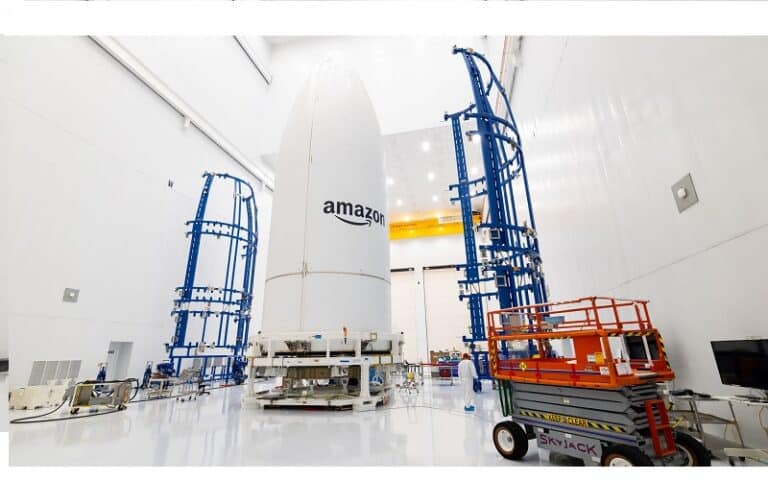Amazon wants to launch the first 27 Project Kuiper Low-Earth Orbit (LEO) communication satellites from Cape Canaveral next Wednesday, April 9. Once complete, the Kuiper network should be able to offer commercial broadband access anywhere on earth.
With the upcoming launch of Kuiper Atlas-1, the tech giant wants to use an Atlas-V rocket from launch service provider United Launch Alliance to place the first 27 satellites of the project in a low-Earth orbit (LEO) of 450 kilometers above the earth. After extensive testing, the satellites must maneuver independently into their final, predetermined orbit at 590 and 630 kilometers.
Latest technology
According to Amazon, the satellites themselves have the latest communication technology, such as phased array antennas, advanced solar panels, electrical propulsion systems, and optical links for communication between them.
The satellites are also equipped with a special film coating that diffuses reflective sunlight, making them less visible to astronomers on Earth and, therefore, less of a hindrance to astronomical research.
Large number of launches
Amazon wants to launch 3,232 satellites into low orbit for Project Kuiper. The company has already reserved seven additional launches with the United Launch Alliance Atlas-V rocket. In addition, 38 launches will be made with the more powerful Vulcan Centaur rocket from the same launch company.
The tech giant has also planned launches with SpaceX, Blue Origin (owned by Amazon founder Jeff Bezos) and the French company Arianespace. In total, this amounts to 80 launches for the entire network of communication satellites.
Competition lurking around the corner
Project Kuiper is Amazon’s answer to Elon Musk’s Starlink, among others. It started in 2019, and the tech giant has set aside 10 billion dollars for it. Experts expect the total project to cost more than 20 billion dollars.
The project is under intense pressure from the American telecommunications regulator, the FCC. The regulator demands that Amazon have at least half of the planned LEO satellites, 1,618 in total, in orbit by July 2026.
Project Kuiper’s other competitors besides Starlink are the European OneWeb, which now has more than 650 LEO satellites in orbit, and the Chinese Spacesail. This provider currently has 36 satellites in orbit, but plans to expand to 15,000 LEO satellites.
See also: Europe agrees on Iris²: 10.6 billion satellite network as Starlink alternative
